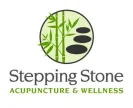![]()
By Michael Dell’Orfano, Lic.Ac.
This post is copied from our older, original blog. Original post date 4/4/16.
The inspiration for this particular blog post is the reality of what I see on a daily basis in clinical practice as a natural medicine practitioner. Unfortunately, many of my current patients suffer from mental/emotional disorders to various degrees, and one of the most debilitating and common mental/emotional disorders I see is clinical depression. First off, it is important to understand that clinical depression, or major depressive disorder, is different than a temporary, fleeting feeling of being down and out, or what people refer to as the blues. It is actually a normal reaction to feel and express such temporary emotions when things are going wrong and we have a really bad week. Rest assured, we all go through this at times, and it does not mean something is wrong with us just because we feel so bad. When someone has clinical depression, simply playing a song for them that they like or taking them to the movies or an amusement park will not solve the problem like it might if it is simply just the “blues.”
Clinical depression requires treatment from medical professionals to alleviate the symptoms and to help the person get back on track. This might require a team approach. It is not uncommon for patients with clinical depression to seek help from a psychotherapist to get them through issues and deal with the roadblocks to feeling better. Western medicine tends to favor SSRI drugs such as Celexa, Paxil, Prozac, and Zoloft, and other classes of drugs as the main treatment for these patients, but many patients end up with side effects from these drugs and look for alternative treatments or other means for alleviating the side effects from the drugs as well as the depression itself. Natural medicine has a variety of treatment options for clinical depression, some of which include dietary advice, acupuncture, aromatherapy, herbs and various forms of spiritual cultivation such as meditation, breathing exercises, qigong/taiji or yoga.
From the Chinese medicine perspective, depression is most often diagnosed as a central disturbance to the shen. The shen is the spirit, which resides inside the Heart. The Heart is the emperor of the body according to Chinese medicine, so it the ruler of all the organ systems. The pericardium is the membrane layer surrounding the heart in Western anatomy, but in Chinese medicine theory its protective nature goes far beyond the physical. The Pericardium’s main role in Chinese medicine is to protect the Heart from physical, mental/emotional and spiritual harm. This means, that like in Western medicine, it protects the heart from bacterial infections and the like, but it also has a lot to do with protecting us from emotional damage that can strike the Heart from the actions and thoughts of others. If this emotional barrier is penetrated and “evil” enters the Heart it can be detrimental to the shen. When the shen is disturbed the following symptoms of depression can set in- loss of appetite, fluctuations in weight, fatigue, insomnia, low self-esteem, lack of mental clarity, poor direct eye contact, disengaging from conversations and social activities, sadness, and other emotional disturbances. The symptom complex in any given individual with depression can contain one or more of these symptoms, so if you know anyone that fits this picture, realize they might be struggling with depression and let them know that acupuncture another natural medicine modalities can help them with their problems.

